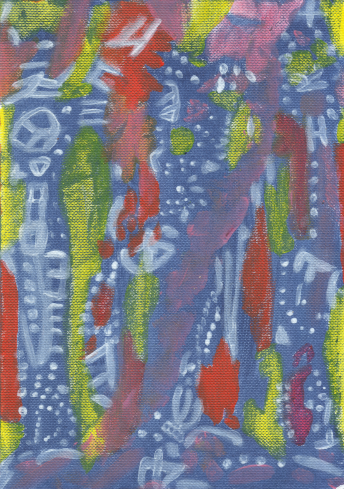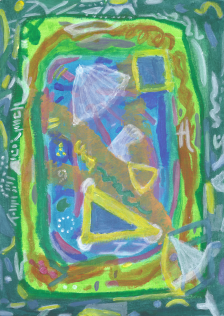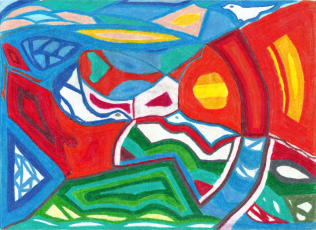Was ruminating just now over feelings of regret and longing. These can pop up and disrupt the flow of peace at times. How to deal with those?
I have been practising telling myself each time that I can't change the past. What has happened has happened, there's no super-power I have that can turn back the clock and make me do things different. And even if I could, would I want to?
Past mistakes were done by a younger self that didn't know any better. But now you do know better, and it is because of your younger self that you know better. So stop punishing yourself, take a bow to your younger self and resolve to honour the mistake by being wiser from now on. And remembering your less-than-graceful moments can help one to be humble, which is helpful for overcoming conceit. But the guilt, longing, aversion, anxiety and remorse is not helpful, that can be let go of.
Your younger self is not who you are now. And it is who you are now that's important. Who you are now is what's generating the kamma for your future self.
Putting oneself down and feeling guilt, shame and anxiety will become a habit when repeated over a lengthy period of time, and it is a habit that is no good for the mind. It depresses it, and a depressed mind is no fun to be in at all. Our mind is our home, and so we should make it the kind of home that is warm, friendly, welcoming, wise, peaceful, and a refuge even when times are shit.
Unfortunately pain, sickness, fatigue, loss and separation is inevitable in this world. That is the kamma of having a body. Noone escapes this, not even enlightened beings. The Buddha aged, got sick, had back problems, had a toxic cousin intent on murdering him, and he died.
It is the fate of all living beings.
What is the most important thing to have with us when we die?
Our time here is short and one could die at any moment, old age is not guaranteed, people die at different ages and that's normal; across the many species of life on Earth both young and old die. Noone knows how much time they have here.
And it isn't these things that are the problem. They are inevitable, they are outside our control, that's the way it is in a changing universe of interdependence and entropy.
The problem is how we feel about these things. It is the hostility in the mind towards them that is the problem. Aversion is an unpleasant emotion, it comes with unpleasant sensations, unpleasant feelings and thoughts. It makes one's consciousness feel toxic and unhappy. To the point where one would do anything to get rid of it. And it brings us negative consequences - one's kamma, setting us up for more misery in the future. And yet we can't see that it is this hostility in the mind, this craving for things to be different that causes the suffering.
The good news is that aversion is not necessary and can be removed from the mind. And why wouldn't one want to remove it from the mind? It is not helpful, and one can live perfectly well without it.
Aversion is generated by the mind. And because it is generated by the mind, it is possible to train one's mind to let go of it, and feel the relief of a mind that is not hostile. A serene happy mind filled with unconditional love instead of fear. It is easier to feel love for others when the mind is less hostile, when you realise all beings value their lives. That all beings want to feel safe, loved, and at peace. Just like you do.
Our mind is our true home. It is what we take with us when we die.
It might take time, a lot of practise, perseverance and a huge helping of patience. But continue putting in the right causes and conditions even when it feels like a desert and a trudge, and eventually the garden will flower and fruit all by itself. But remember to be gentle with the mind, a friend to it, take regular breaks and rest from the work. Impatience and overdoing it won't make anything grow faster.


